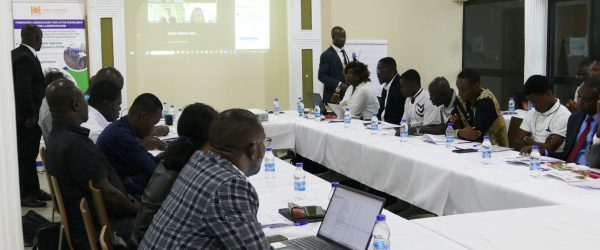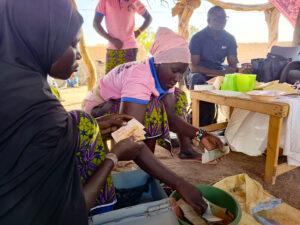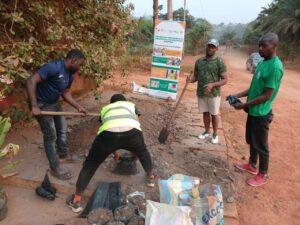The SCEB and CAMAYE cooperatives, supported by Inades-Formation, IRD and ETHIQUABLE, are implementing the Côte d’Ivoire cocoa biofactory project from 2021 to 2023. The results of this project, part of the Equité program run by AVSF in West Africa and financed by AFD, were presented at a capitalization workshop held from July 13 to 14 in Abidjan.
On July 13 and 14, 2023, Inades-Formation, the SCEB and CAMAYE cooperatives, IRD and AVSF, members of the consortium for the implementation of the project biofabrique: research-action-training for agro-ecological and organic cocoa production around bio-factories in Côte d’Ivoire in short Cacao-Côte d’Ivoire Biofabrique projectpresented the results of the project to Côte d’Ivoire cocoa growers and development partners.
The restitution workshop, which brought together some thirty participants including government structures, namely MEMINADER, the Ministry of the Environment, industrialists and players in the cocoa sector, and development partners, at the Bluebay Hotel in Abidjan, enabled the various project players to share their experiences and the results of the project’s key activities.
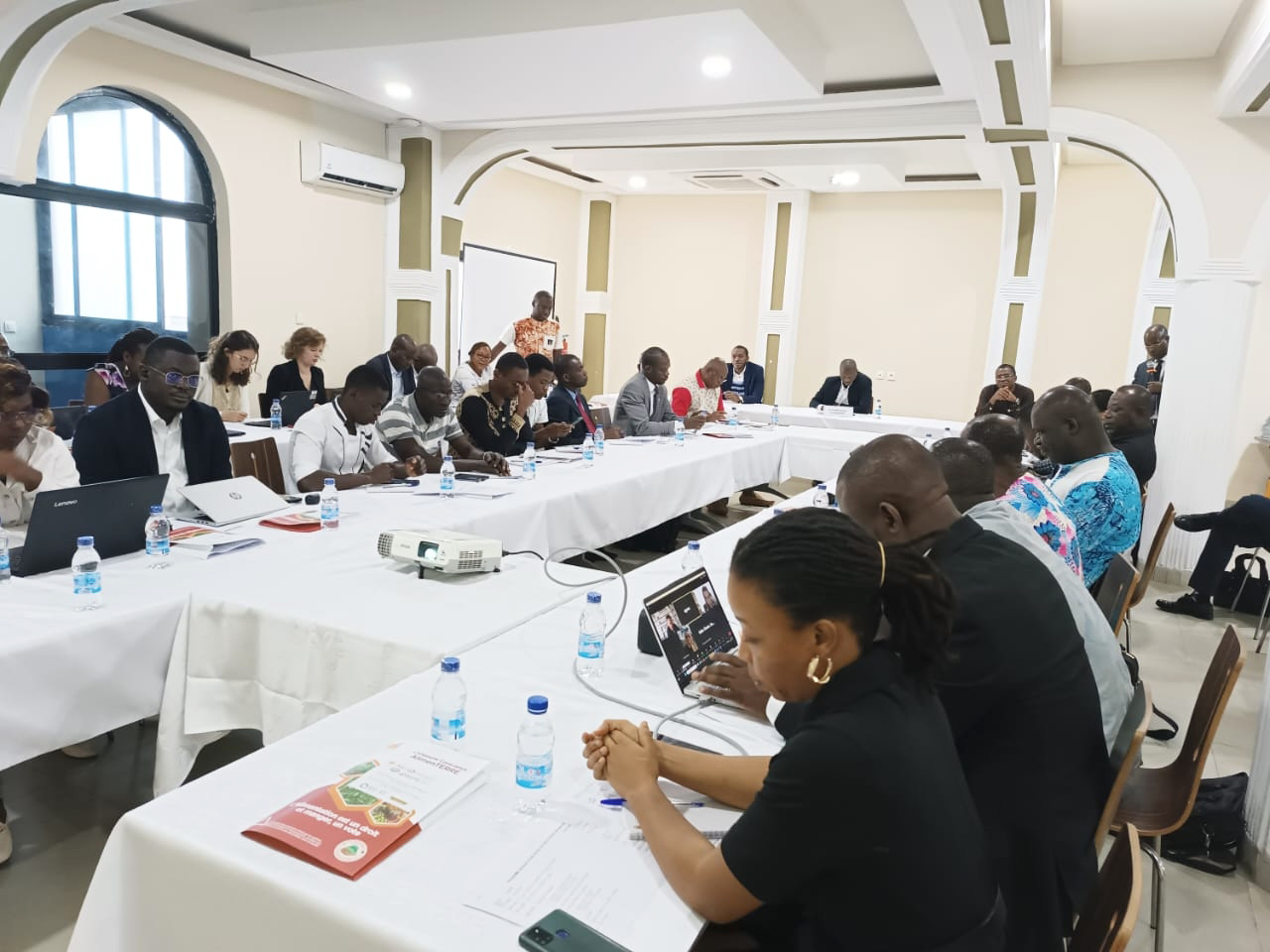
The aim of the Biofabrique project was to contribute to the development of an organic sector in Côte d’Ivoire, and to make organic inputs and pesticides accessible and affordable, using recipes adapted to local contexts and producers’ needs, in order to increase the added value of cocoa, but above all through an alternative experience, without chemical inputs, to ensure the agro-forestry and agroecological transition.
Côte d’Ivoire’s cocoa sector has to meet sustainable agriculture standards. The intensification of cocoa production, with its use of synthetic chemical pesticides, monoculture and deforestation, is exacerbating the effects of climate change and a drop in production. To break out of this vicious circle, some farmers who have turned to organic cocoa are finding it difficult to access biointrants.
Carried out in Côte d’Ivoire, Abengourou and Tiassalé respectively with the CAMAYE and SCEB cooperatives involved in organic cocoa, the biofabrique project was subdivided into 3 components: setting up and equipping biofabriques, action research and training trainers and farmers’ organizations in agroecological practices.
Inades-Formation has organized various training courses for producers and technicians in the manufacture of organic fertilizers and pesticides, in good agricultural practices including cocoa tree pruning and agroforestry, in the application of these bio-inputs, in biofactory management, and so on. Producer trainers have benefited from exchange and training trips to the sub-region and to reference centers such as the Songhai center in Benin.
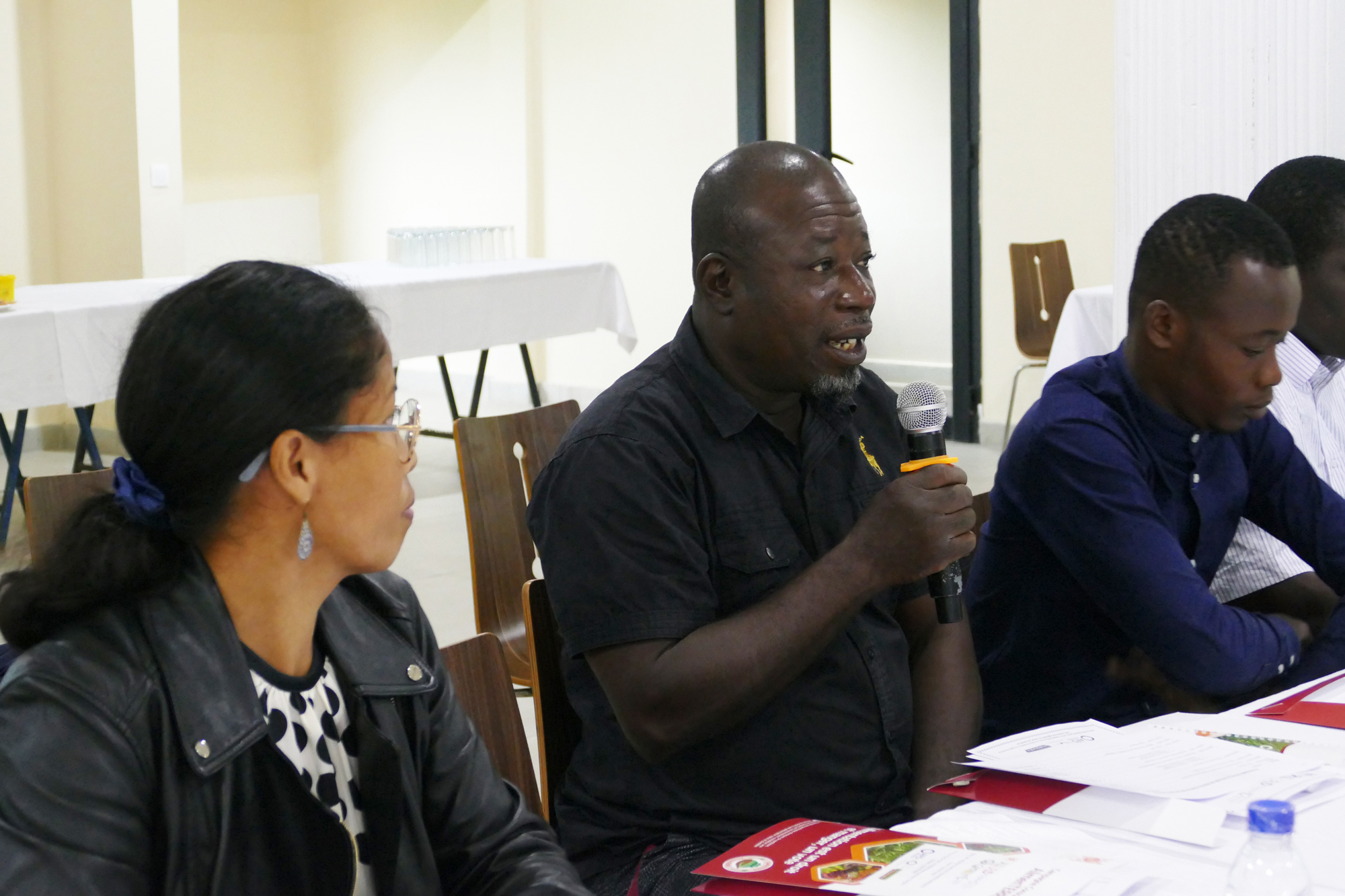
The biointrants prepared were adapted from biointrant recipes produced in Latin America. Experimental plots were set up to observe the impact of the practices applied, and producers were involved in data collection as part of the action research. The IRD center was involved in data collection and analysis.
The results of this project include the training of (a number of) producers in the manufacture of biointrants, the setting up of two functional biofactories at Camayé and SCEB, the effectiveness of the biointrants produced and applied in the fields, and an increase in the production of the cocoa farmers involved.
Biofactories are production units for a broad spectrum of biointrants for comprehensive crop protection and soil fertility improvement. They are based on the principle of recycling culture and micro-organism waste.
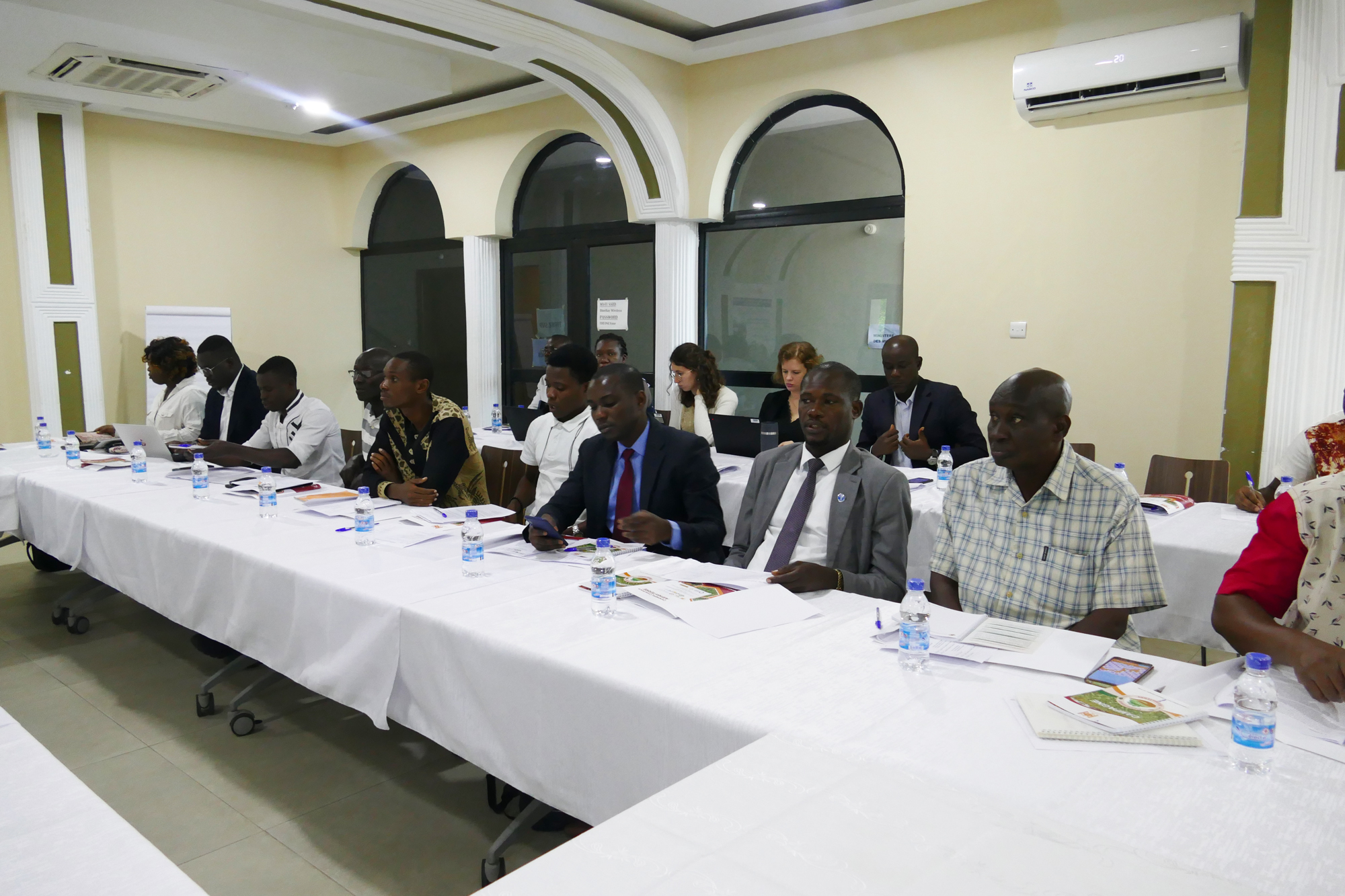
According to project coordinator Goné Aristide, “this innovation makes life easier for cocoa producers in particular, as it is easy to implement and considerably reduces their production costs. Our research confirms the positive effect of these biointrants from biofactories on cocoa yields, soil fertility and the reduction of crop pests. Innovation therefore has a real positive impact on the soil and on the income of cocoa producers”.
Participants offered their criticisms of the project and made suggestions for improving similar actions in the future.
Mr. Akomola KOMLAN, Head of AVSF Côte d’Ivoire, in charge of the Equity program in West Africa, under which the Biofabrique project took place, is satisfied with the project’s implementation. “The various results presented are very positive. I’d already like to thank Inades-Formation, the SCEB and CAMAYE cooperatives and ETHIQUABLE for their involvement in the success of this project. I’m pleased to see that this initiative has been rapidly adopted by the cooperatives in Côte d’Ivoire. However, the process is not yet complete. Hence this workshop to capitalize and gather suggestions for a possible next step or scale-up.
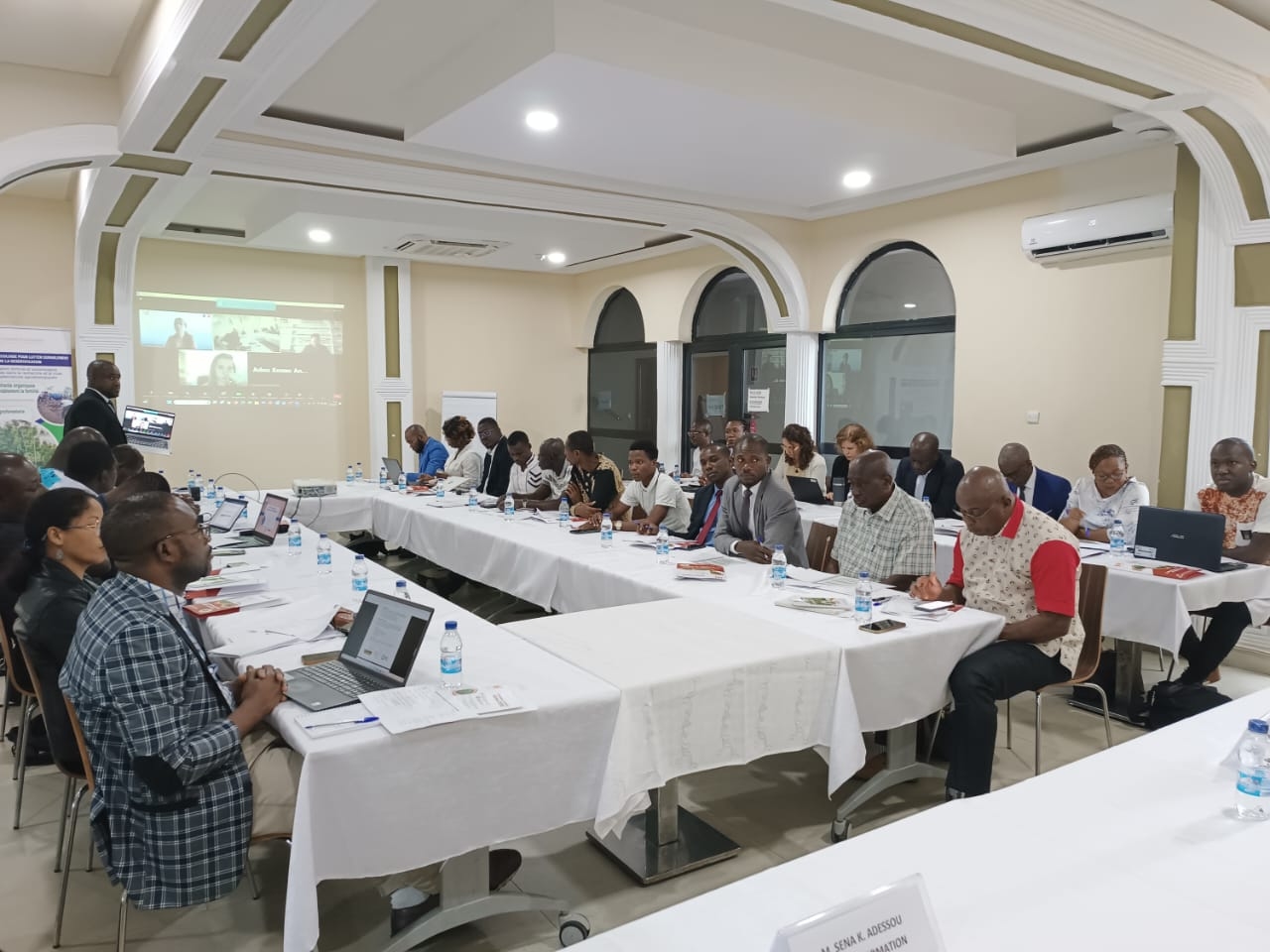
At the end of the workshop, the participants expressed their satisfaction at having been involved in this restitution, which had enabled them to discover this initiative, which they found truly appreciable, as testified by Mr. Dosso, study officer in the fertilizer department of the Fertilizer, Seed and Related Programs Directorate of the Ministry of State, Ministry of Agriculture: “It’s a good initiative to be encouraged, especially as producers have been trained to produce their own inputs. It’s an initiative that it would be interesting to introduce into the training programs of agricultural schools. The need for bio-inputs is great and the market is open. Young people can therefore take an interest”.
“Through the results of this pilot project, we hope to make innovation accessible to as many cocoa producers as possible, thanks to the support of our institutions such as the Conseil Café-Cacao and the Prime Minister’s Office, because the results of this project are part of the national strategy for sustainable cocoa in Côte d’Ivoire. Concluded Mr. Aristide Goné, project coordinator.
Communication Department – Inades-Formation – General Secretariat
Workshop photo gallery

